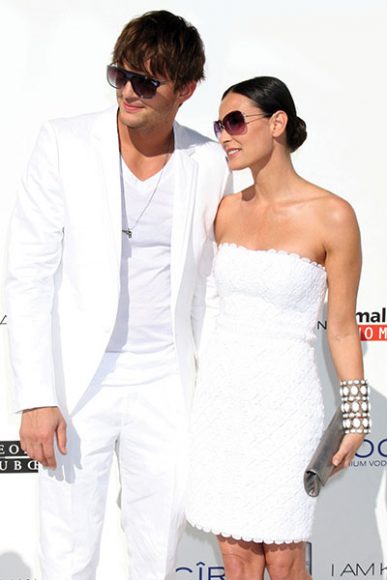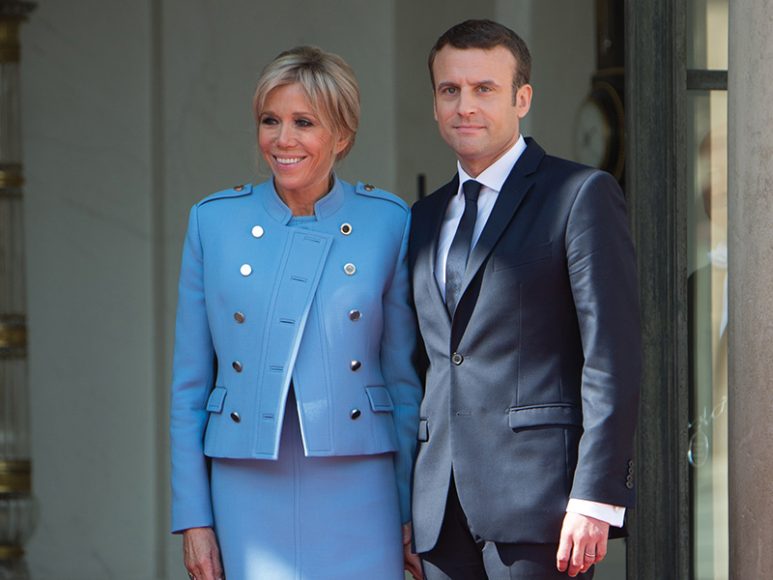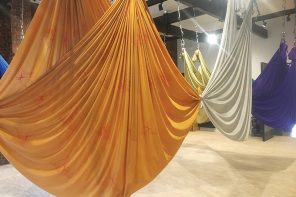In a world where women are still treated like commodities, older women are seen as past the sell-by date.
Older men are considered distinguished, sexually viable, still in the game. Whereas older women are viewed as fading into less — less attractiveness, less relevance — caught somewhere between the facelift and facelessness.
“Absolutely,” Sheila Nevins says, “or I wouldn’t have had a facelift to preserve the outward shell.”
In her smartly observed new book “You Don’t Look Your Age… and Other Fairy Tales,” Nevins, the tough-minded president of HBO Documentary Programming, writes about facing that facelift at 56.
“You see, I must be young at any price. Young was in. I worked in media. Nobody wanted advice from an old broad. My bosses wanted a young audience. Had it occurred to them that an older brain could think smart and young?”
An older brain may be able to think smart and young — and an older voice may be able to sing smart and young, too — but they face an Everest of challenges in a visual culture. Witness the great sopranos Natalie Dessay and Renée Fleming, who have taken leave of the operatic stage. Their stratospheric voices haven’t deepened and darkened, which would enable them to shift to supporting roles. Instead those voices remain suited to the coquette and heroine roles that the singers, in their 50s, can no longer plausibly sustain.
“It’s not that I’m leaving opera,” Dessay told the newspaper Le Figaro in 2013. “It’s that opera is leaving me.”
Tellingly, Fleming chose for her leave-taking, at The Metropolitan Opera , the role of the Marschallin in Richard Strauss’ “Der Rosenkavalier,” who relinquishes her young lover to the ingénue he falls for.
If the older woman is deemed somewhat ridiculous, the older woman with a younger man is considered even more so. The older man-younger woman has long been accepted — whether it’s President Donald J. Trump and wife Melania, George and Amal Clooney or Derek and Hannah Jeter — even the majority of American women marry a man who is no more than five years older. But the older woman in such a relationship is viewed as a.) a beard for a closeted gay man; b.) a vulnerable senior in danger of being exploited; or c.) a sexual virago.
That view may be changing. Recently, the New York Post ran a story on this subject with a headline that read: “Once derided, older women and younger men are now the hottest couples.” The ascendance of newly elected French President Emmanuel Macron and his wife, the former Brigitte Trogneux, may also shed light on the richness in being an older woman (and being with one). Critics have scoffed at how they first met. (He was a 15-year-old schoolboy and she, his drama teacher, married with three children and 24 years his senior, though they have stressed that they didn’t begin their sexual relationship until he was of age.) Others have tried to demean her by calling her everything from a grandmother (a factual compliment) to a bimbo (an absurdity).
What has emerged in the press in recent weeks, however, is a portrait of an enduring marriage of equals who are also complements, with Brigitte Macron serving as sounding board, shield and adviser — exhorting her wonkish hubby to eat right and appear more accessible at the podium and championing women’s rights and education for the underserved.
Mme. Macron has also joined the likes of Oscar winner Helen Mirren to suggest that just because there’s snow on the roof doesn’t mean there isn’t fire in the furnace. Whether in leather leggings and moto jackets or mesh, beaded LBDs that show off her lithe legs, Macron is the quintessential Frenchwoman and older woman — sexy, sophisticated, vibrant and assured. Even her powder-blue Louis Vuitton inaugural ensemble, which some say parroted Melania Trump’s Ralph Lauren outfit, was vastly different in cut and effect — less Jackie and more Brigitte.
But don’t expect Macron’s debut and example, as sparkling as Champagne, to change society’s ambivalence toward older women overnight and singlehandedly. There are millennia of nature and nurture conspiring against the older woman.
Nevins — who writes about menstruation and menopause in a chapter called “Eunice’s Period. Stopped.” — sees this conspiracy more in evolutionary, Darwinian terms. “Getting your period is the first turning point,” she says. “The second turning point is when your period stops, and you can’t make a baby anymore.”
It’s the reason Henry VIII divorced his first wife, Catherine of Aragon (six years older) and Napoléon divorced Josephine (five years older).
Men, too, have their cycles (as the deathless supply of erectile dysfunction commercials keeps reminding us). But their ability to keep procreating creates the illusion of sexual desirability, even as studies show that older fathers put their offspring at risk for autism, schizophrenia and other psychiatric disorders.
Women’s cycles, however, are more overt in marking the passage of time and the inexorable march to the grave. In an adolescent culture like America, time is the great enemy and death, the great fear. As Nevins puts it, “If they can make a car without a driver, why can’t they make a me that lasts?”
But if nature were all that was at play here, men would be the “fairer” sex, as males are in the remainder of the animal kingdom. True, men offer women accomplishments on the ball field and in the board and bed rooms, along with houses and jewelry — the equivalents of the male bower bird festooning his bower with pieces of colored glass, shells and blueberries to entice the female. But men have long since ceded their peacock plumage to women. Why? Power. As human consciousness developed and civilizations rose — men not only retained physical power over women but attained political and economic power over them as well. They objectified women, for to objectify someone is to control her.
Yet women proved adept at this chess game, turning the objectification of their youth and beauty into a kind of power that gave them status and, more important, security for their children. (The beauty game can be a trap, though: For every Melania, there’s a Marilyn, who, facing a lonely middle age and waning movie career in 1962, killed herself.)
Mainly, however, women are buttressed in their pursuit of youth and beauty by the multibillion-dollar cosmetics and media industries. What would happen to Chanel and Vogue if women abdicated their roles as mighty Aphrodites?
We don’t have to imagine this, anymore than we have to imagine what women’s growing economic and political clout will do to the balance of power between the sexes (tempting though the latter is).
All we need consider is that for the older woman, societal loss is individual gain. The freedom from procreation and the sometimes unwanted male gaze opens the door to greater intellectual creativity. Opera may be saying “goodbye” to Dessay and Fleming, but Broadway and the concert stage are saying, “Come on in.”
As Nevins writes at the end of “Eunice’s Period. Stopped.”:
A graying woman forthright though blond
a rare avis to herself.
For Eunice would spread her plumage,
a palette of feathers
sans red
burning brightly, a kaleidoscope changing,
glorious and necessary,
lustful and powerful with infinite possibilities….






